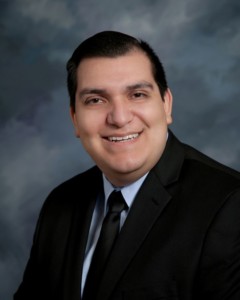Likes on topics under legislative body’s purview could run public officials afoul of AB 992
By HongDao Nguyen and Albert Maldonado, Best Best & Krieger LLP
Clicking the “like” button has become second nature.
Whether it’s a thumbs up, hug or sad face on Facebook, or a heart reaction on Instagram and Twitter, these simple online interactions are now ingrained in the way we communicate with one another. For California public officials, however, these seemingly mundane interactions could run afoul of state law.
Under the recently enacted Assembly Bill 992, public officials could violate the State’s sunshine law if they communicate with legislative members of the same body on social media about matters under the body’s jurisdiction. AB 992 is the first Brown Act amendment to address officials’ social media use.
The Brown Act generally requires local governments to conduct business at open and public meetings.
This includes requiring agencies to give advance notice to the public, post the meeting’s agenda ahead of time and provide the public with access to the meeting. For transparency’s sake, the Act prohibits a majority of a legislative body’s members from directly or indirectly engaging in a series of meetings to “discuss, deliberate or take action on an item” within the subject matter jurisdiction of the body.
Now, even liking another official’s post on a topic before, or within the jurisdiction of, the governing body could violate the Brown Act. Amending Government Code section 54952.2, AB 992 clarifies the social media communications a public official may engage in as well as the actions that are prohibited.
AB 992 covers activity across a plethora of social media platforms — from Snapchat and Instagram to Facebook, Twitter, TikTok, Reddit, blogs and more. The law states that public officials may communicate on such platforms to answer questions and provide the public with information. They may also solicit information regarding matters being considered by the body, or that fall within the official’s jurisdiction.
However, the law prohibits members of a legislative body from using social media to discuss official business “among themselves,” which is defined as making posts, commenting and using digital icons that express reactions to communications made by other members of the legislative body.
The law goes further. While a single contact between one public official and another would not, under general circumstances, constitute a prohibited meeting, AB 992’s social media prohibitions change this.
AB 992 prohibits public officials from responding “directly to any communication” that is made, posted or shared on social media by another member of the same legislative body regarding matters in the body’s jurisdiction. Now, any such communication could be a Brown Act violation.
As the law applies to all Internet-based social media platforms that are open and accessible to the public, elected officials need to keep these new prohibitions in mind when commenting on, reposting, liking, disliking or responding with the growing list of emojis to social media posts of another official.
Questions, Practical Concerns Remain
AB 992 directly amends the Brown Act but touches on other public transparency laws as well.
A few years ago, the California Supreme Court held that the public could have the right to access emails and text messages sent and received by public officials that pertain to public business. The court’s ruling in City of San Jose v. Superior Court noted that electronic communications on both an official’s personal and government email accounts and devices could be subject to the California Public Records Act.
Given the court’s ruling, if a public official, in their official capacity, posts and communicates about public business through social media, those posts could also be subject to the CPRA.
Moreover, as we’ve discussed in a previous article, platforms like Facebook, Instagram, Twitter and the like are the modern-day public square where vital public information is disseminated and discussed.
If a public official is using social media to communicate with constituents and share critical public information, they may have turned their social media space into a public forum that is subject to the First Amendment. If this happens, officials should be wary of blocking individuals from their pages when they don’t like or agree with the poster’s viewpoint. Such a move could violate a poster’s constitutional rights.
Finally, in regard to an official’s digital communications, issues arise regarding document retention.
To resolve potential issues with the Brown Act, CPRA and even constitutional concerns, an official’s posts may need to be reviewed and their agency may want to consider retaining social media posts.
Sign up to attend BB&K’s free webinar on this topic: “Comments, Likes and Emojis, Oh My! An Update on Evolving Social Media Law for Public Officials and Agencies.”
HongDao Nguyen is an Irvine-based partner with Best Best & Krieger LLP’s Municipal Law practice group and ARC: Advanced Records Center. She represents public agencies in transactional and litigation matters with a focus on land use and public records law. Nguyen serves as city attorney for Stanton, and assistant city attorney for Aliso Viejo and Lake Forest. She can be reached at hongdao.nguyen@bbkwlaw.com.
Albert Maldonado, an associate in Best Best & Krieger’s Municipal Law practice group, advises California cities, school districts and special districts on transparency and ethics laws (including the Brown Act, Public Records Act and Political Reform Act), public contracts, First Amendment and conflict of interest issues. Get in touch with Maldonado at albert.maldonado@bbklaw.com.







